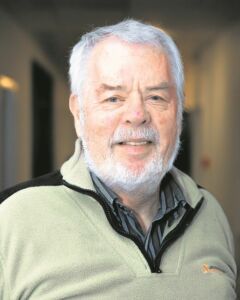Opinion
Now we will see
Ejvind Sandal
This article is more than 10 years old.

Unlikely Lars and Inger will be lining up together in a new government, but expect the unexpected! (photo: Hasse Ferrold)
Parliament is in session, and now we will see if the slim Venstre government can operate.
It is certainly a minority government, but it need not worry about a majority as long as it has no majority against it. That is the code of parliamentarism. The opposition will not want to topple the government if there is no workable alternative.
Divide and rule
Dansk Folkeparti, the balancing factor, doesn’t want to risk losing popularity by backing governmental platforms that will inevitably compromise its core policy.
So we can assume that the government is dividing and ruling. That should ensure no controversial proposals surface!
It knows very well that should it be forced to step down, there would be a general election, and none of the parties will feel like challenging an electorate that not only seems volatile, but also totally unpredictable.
Time for change
Before we know it, such a balance of power could result in real change. After all, aren’t these unprecedented times? So don’t rule out the government making some radical changes to make Denmark a stronger, more adaptable country in the new-look world order.
Like making English an official second language. Unofficially it is already a fact. Corporations operate officially in English; more than 50 percent of all scientific papers submitted at Danish universities are written in English as they have to reach a global audience; and it will greatly assist in the integration of migrants as it is a language that most already have a good command of.
Or testing if the liberalisation of mild drugs is a way out of gang-related crime and stress on the police and prison facilities. Given how the nation has been able to abandon tobacco with little pressure and just a few restrictions over the last decade, it makes you wonder why the same couldn’t be true of permitting the use of illegal drugs.
And finally, has there ever been a better time to test if the overheated health system could be controlled better with a modest user payment system – a first step towards lessening the pressure on the welfare state.
We have seen how the private hospitals and clinics offer fast and competent treatment to those who demand it. But long waiting lists and hyper expensive medicine are factors that a free and unlimited health system cannot handle. The treatment of serious illnesses should be prioritised, but the greediness exercised in the consumption of public services has to be reduced.
Our inevitable progress
While these three issues are unlikely to pop up in the government’s opening declaration or be found in the budget this autumn, the problems will not go away, and before the politicians know it, they will be a fact of life. Just wait and see!
About
Ejvind Sandal
Ejvind Sandal is the editor-in-chief and publisher of the Copenhagen Post and has owned the newspaper since 2000.











































